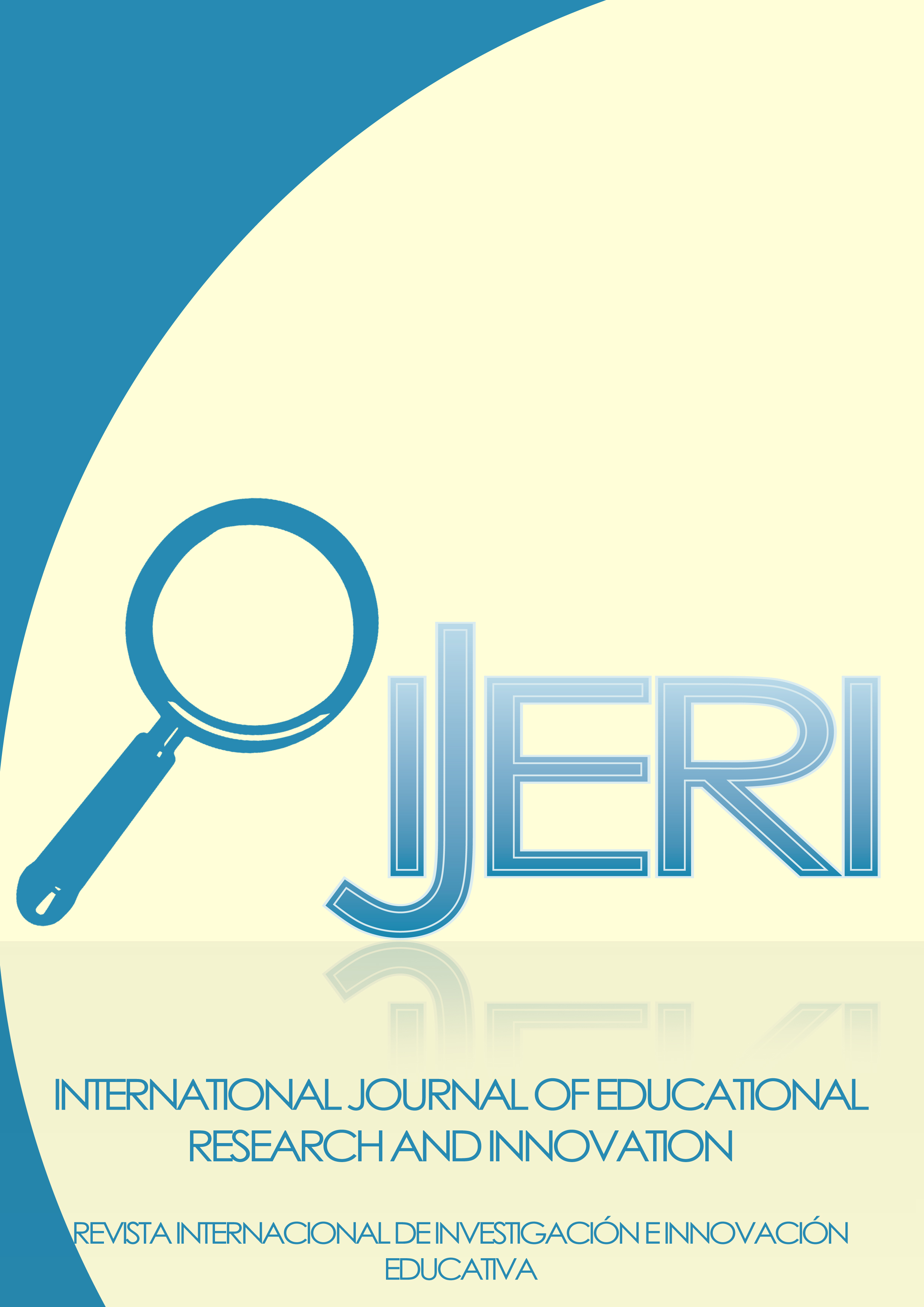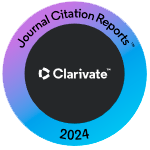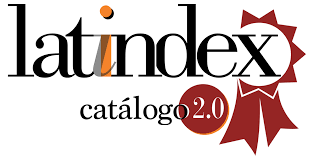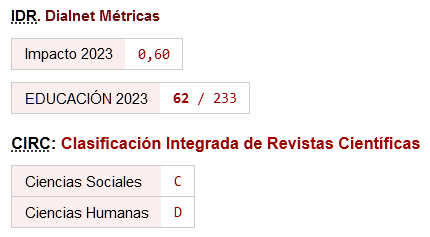Detection of teacher training needs in inclusive education.
DOI:
https://doi.org/10.46661/ijeri.6193Keywords:
Fetal alcohol syndrome, educational needs, teachers, training, questionnaireAbstract
It is imperative to detect the training needs of education professionals on the educational needs of students with a diagnosis of Fetal Alcohol Spectrum Disorder, thus favouring an early detection that allows the correct development of the person and a rights-based education. To this end, the aim is to design a tool to assess the knowledge and attitudes of teachers, professors, and counsellors to determine, if appropriate, training needs. The Delphi method is applied to a sample of seven experts in the field. In the data analysis, the relative interquartile range (RIR) was applied to determine consensus and the variation of the RIR to determine stability between consecutive rounds. In the third round, consensus was obtained for most of the items, retaining those items where RIR<.05. Between the second and third consecutive rounds, panel stability was achieved, with the RIR variation being less than .05 in more than 80% of the items. In conclusion, the questionnaire shows high content validity and incorporates the most relevant items about FASD that should be known in order to detect a possible case of FASD at an early age.
Downloads
References
Abal, F.J.P., Aune, S.E., Lozzia, G.S., y Attorresi, H.F. (2017). Funcionamiento de la categoría central en ítems de confianza para la matemática. Revista Evaluar, 17(2), 18-31. https://revistas.unc.edu.ar/index.php/revaluar
Andrés-García, I., Muñoz-Moreno, M. F., Ruiz López del Prado, G., Gil-Sáez, B., Andrés-Puertas, M. y Almaraz-Gómez, A. (2019). Validación de un cuestionario sobre las actitudes y práctica de actividad física y otros hábitos saludables mediante el método Delphi. Revista Española de Salud Pública, 93, 1-12. https://www.mscbs.gob.es/biblioPublic/publicaciones/recursos_propios/resp/revista_cdrom/vol75/indices/VOL93_2019.htm
Arregui, G., Vallejo, B. y Villareal, O. (1996). Aplicación de la metodología Delphi para la previsión de la integración española en la Unión Económica Monetaria. Investigaciones europeas de dirección y economía de la empresa, 2(2), 13-37.
Baka, A. S., Figgou, L. y Triga, V. (2012). “Neither agree, nor disagree”: a critical analysis of the middle answer category in Voting Advice Applications. Intenational Journal of Electronic Governance, 5 (3/4), 244-263. DOI: https://doi.org/10.1504/IJEG.2012.051306
Blasco, J. E., López, A. y Mengual-Andres, S. (2010). Validación mediante método Delphi de un cuestionario para conocer las experiencias e interés hacia las actividades acuáticas con especial atención al windsurf. Ágora para la Educación Física y el Deporte, 12(1), 75– 96. https://revistas.uva.es/index.php/agora/issue/view/235
Bowman, S., McKinstry, C., Howie, L. y McGorry, P. (2020). Expanding the search for emerging mental ill health to safeguard student potential and vocational success in high school: A narrative review. Early Intervention in Psyquiatry, 14(6), 655-676. DOI: https://doi.org/10.1111/eip.12928
Cabero-Almenara, J. y Barroso-Osuna, J. (2013). La utilización del juicio de experto para la evaluación de TIC: el coeficiente de competencia experta. Bordon 65(2), 25-38. DOI: https://doi.org/10.13042/brp.2013.65202
Cabero-Almenara, J. y Infante-Moro, A. (2014). Empleo del método Delphi y su empleo en la investigación en comunicación y educación. Revista Electrónica de Tecnología Educativa, (48), 1-16. DOI: https://doi.org/10.21556/edutec.2014.48.187
Chudley, A. E. (2008). Fetal Alcohol Spectrum Disorder: counting the invisible – mission impossible? Archives of Disease in Childhood, 93(9), 721-722. DOI: https://doi.org/10.1136/adc.2008.137109
Emmers, E., Baeyens, D. y Petry, K. (2019). Attitudes and self-efficacy of teachers towards inclusion in higher education. European Journal of Special Needs Education,35(2), 139-153. DOI: https://doi.org/10.1080/08856257.2019.1628337
García-Valdés, M. y Suárez-Marín, M. (2013). El método Delphi para la consulta a expertos en la investigación científica. Revista Cubana de Salud Pública, 39(2), 253-267. http://www.revsaludpublica.sld.cu/index.php/spu/article/view/124
García-Ruiz, M. E. y Lena-Acebo, F. J. (2018). Aplicación del método Delphi en el diseño de una investigación cuantitativa sobre el fenómeno FABLAB. EMPIRIA. Revista de metodología de Ciencias Sociales, (40), 129-166. DOI: https://doi.org/10.5944/empiria.40.2018.22014
Lacave-Rodero, C., Molina-Díaz, A. I., Fernández-Guerrero, M. y Redondo-Duque, M. A. (2016). Análisis de la fiabilidad y validez de un cuestionario docente. Revista de investigación en Docencia Universitaria de la Informática, 9(1), 23-36. http://aenui.net/ojs/index.php?journal=revision&page=article&op=download&path%5B%5D=219&path%5B%5D=372
Landeta, J. (2002). El método Delphi: una técnica de previsión del futuro. (2ª ed.) Ariel.
Landeta, J. (2006). Current validity of the Delphi method in social sciences. Technological Forecasting and Social Change, 73(5), 467-482. DOI: https://doi.org/10.1016/j.techfore.2005.09.002
Lange, S., Rovet, J., Rehm, J. y Popova, S. (2017). Neurodevelopmental profile of fetal alcohol spectrum disorder: a systematic review. BMC Psychology, 5(22), 1-12. DOI: https://doi.org/10.1186/s40359-017-0191-2
Lange, S., Rehm, J. y Popova, S. (2018). Implications of higher than expected prevalence of Fetal Alcohol Spectrum Disorders. JAMA, 319(5), 448-449. DOI: https://doi.org/10.1001/jama.2017.21895
López-de-Arana Prado, E., Aramburuzabala Higuera, P. y Opazo Carvajal, H. (2020). Diseño y validación de un cuestionario para la autoevaluación de experiencias de aprendizaje-servicio universitario. Educación XX1, 23(1), 319-347. DOI: https://doi.org/10.5944/educXX1.23834
López-Gómez, E. (2018). El método Delphi en la investigación actual en educación: una revisión teórica y metodológica. Educación XXI, 21(1), 17-40. DOI: https://doi.org/10.5944/educXX1.20169
Matas, A. (2018). Diseño del formato de escalas tipo Likert: un estado de la cuestión. Revista Electrónica de Investigación Educativa, 20(1), 38-47. DOI: https://doi.org/10.24320/redie.2018.20.1.1347
Pérez, I., Torres, E., Alcorta, I., Etxeberria, A., Rotaeche del Campo, R. y Reviriego, E. (2010). Exploración de barreras y facilitadores para la implementación de guías de práctica clínica: un estudio Delphi. Informes de Evaluación de Tecnologías Sanitarias: OSTEBA, E10/05. País Vasco: Ministerio de Sanidad y Política Social. https://www.euskadi.eus/gobierno-vasco/-/informacion/informes-de-evaluacion-de-osteba-del-ano-2010/
Pérez-Iribar, G., Beleño-Fuentes, M., Núñez-Peña, C. R. y Orquera-Cadena, M. (2017). Valoración del resultado científico de la investigación. Una experiencia desde la aplicación del criterio de expertao. OLIMPIA. Revista de la Facultad de Cultura Física de la Universidad de Granma, 14(46), 154-168. https://revistas.udg.co.cu/index.php/olimpia/article/view/195
Popova, S., Lange, S., Shield, K., Burd, L. y Rehm, J. (2019). Prevalence of fetal alcohol spectrum disorder among special subpopulations: a systematic review and meta-analysis. Addiction, 114, 1150-1172. DOI: https://doi.org/10.1111/add.14598
Powell, C. (2002). The Delphi technique: myths and realities. Journal of Advanced Nursing, 41(4), 376-382. DOI: https://doi.org/10.1046/j.1365-2648.2003.02537.x
Pozo-Llorente, M. T., Gutiérrez-Pérez, J. y Rodríguez-Sabiote, C. (2007). El uso del método Delphi en la definición de los criterios para una formación de calidad en animación sociocultural y tiempo libre. Revista de Investigación Educativa, 25(7), 351-366. https://revistas.um.es/rie/article/view/96831
Sans-Fitó, A., Solerdelcoll, A., Boix-Lluch, C., Serra-Amaya, C., Serra-Grabulosa, J. M. y Caldú, X. (2019). Trastorno del Espectro Alcohólico Fetal. Un trastorno del neurodesarrollo infradiagnosticado y de pronóstico incierto. Medicina Buenos Aires, 79 (supl. 1), 62-67. https://www.medicinabuenosaires.com/revistas/vol79-19/s1/Pags.62-67Sans-Fito.pdf
Steurer, J. (2011). The Delphi method: an efficient procedure to generate knowledge. Skeletal Radiol, 40(8), 959-961. DOI: https://doi.org/10.1007/s00256-011-1145-z
Published
How to Cite
Issue
Section
License
Copyright (c) 2022 Nerea Felgueras Custodio, Miriam Díaz Vega, Ricardo Moreno-Rodríguez

This work is licensed under a Creative Commons Attribution-NonCommercial-NoDerivatives 4.0 International License.












